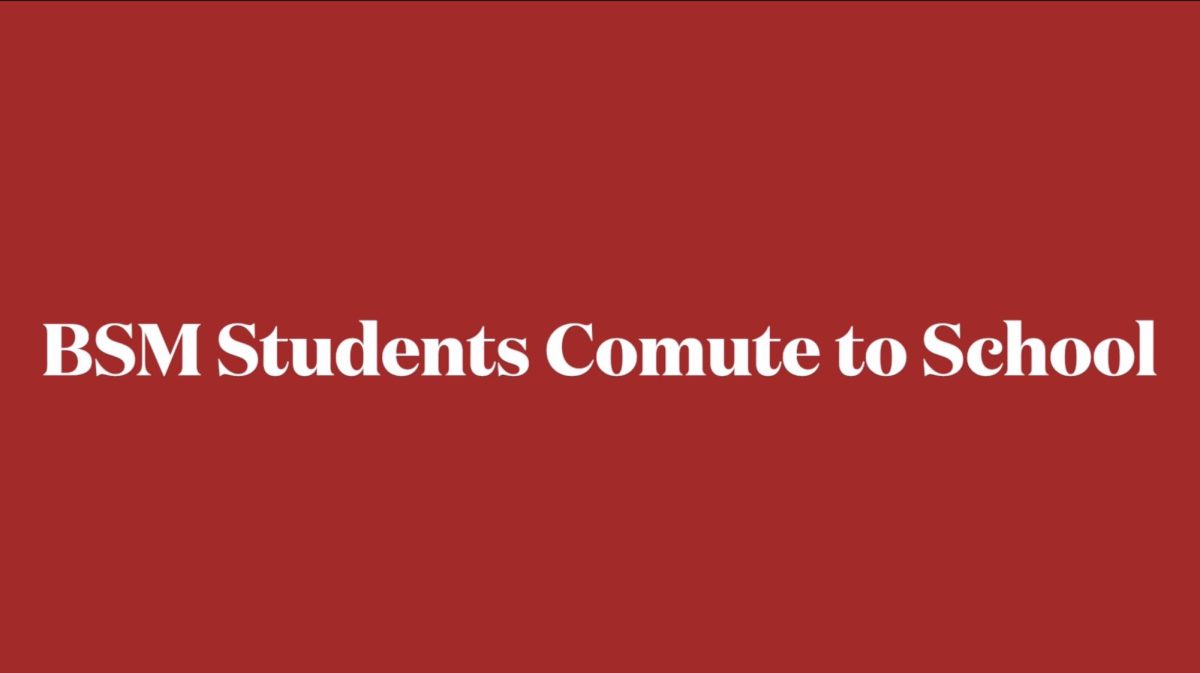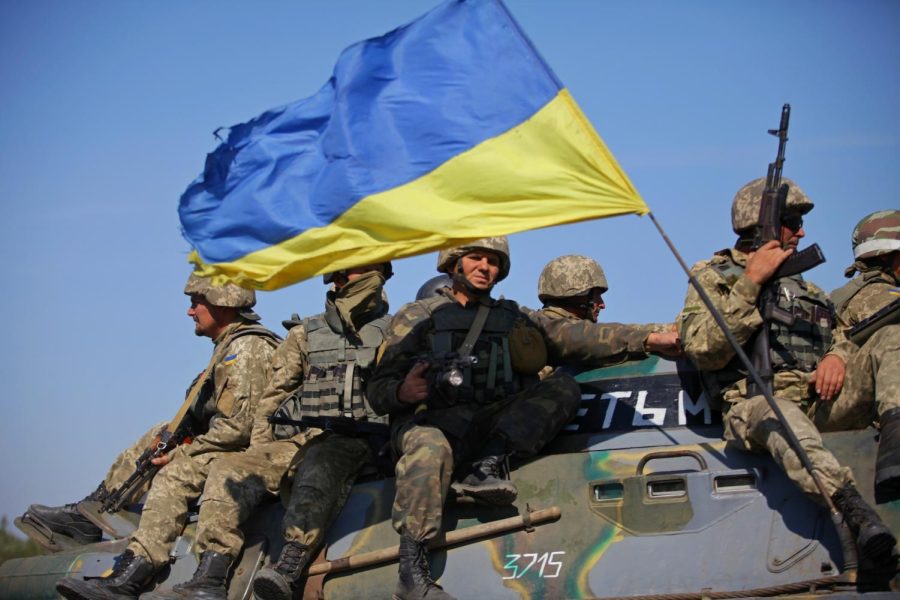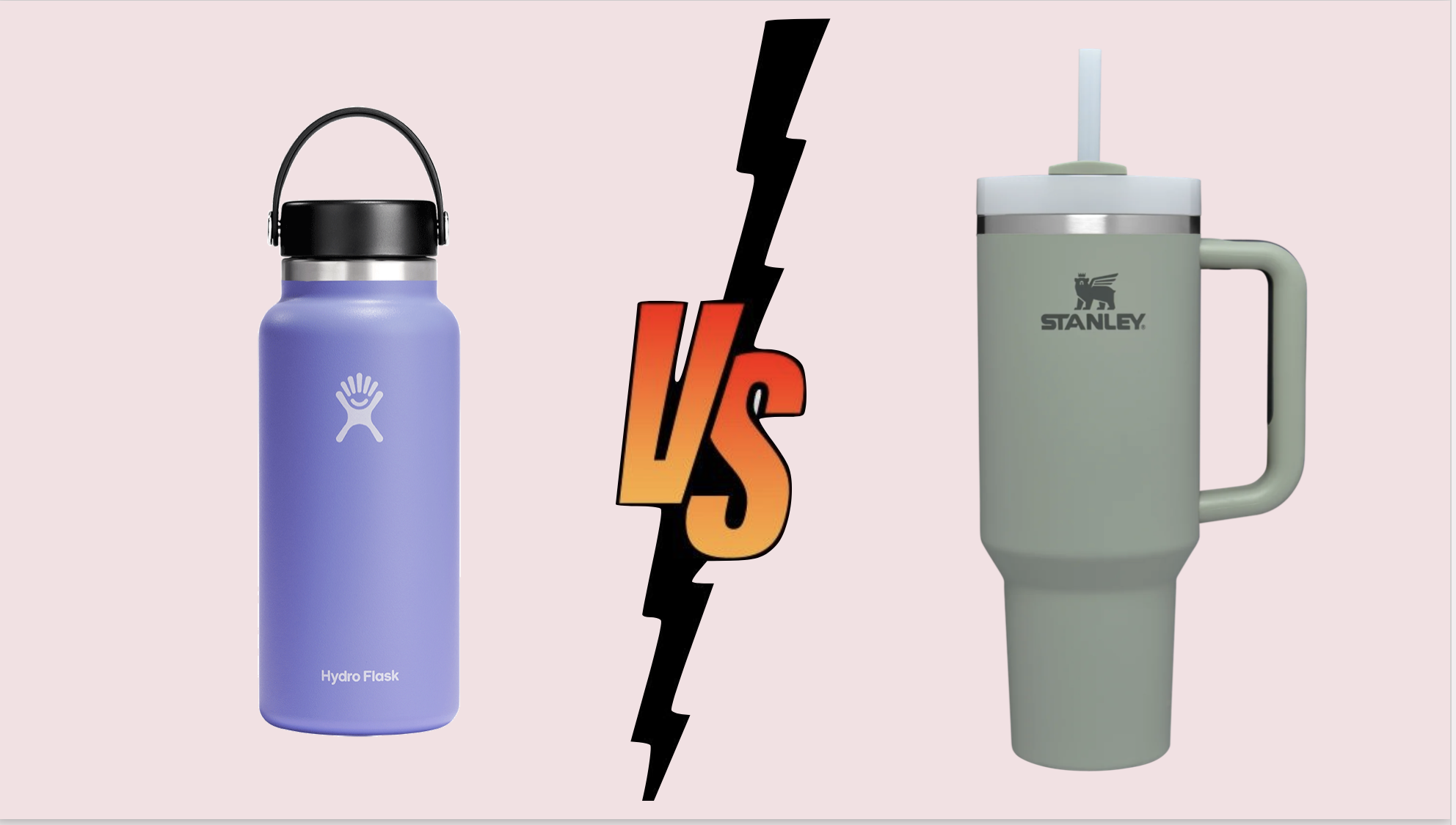Why Ukraine Matters
Courtesy of Ukrainian Ministry of Defense
Ukrainian troops deployed to Eastern Ukraine in 2015
February 24, 2022
Russia and Ukraine are now in a state of all-out war, with the crisis dominating the 24-hour news cycle. However, many Americans are left asking how does this affect me? Why should I care? The answer to this question lies in history.
In 1944, American forces were deployed globally, carrying the war effort against the Axis everywhere from the Pacific to the Rhineland. In Bretton Woods, New Hampshire, the Americans met with delegates from every nation of the Allied Powers to decide the post-war economic order. In that meeting, the Americans essentially guaranteed global free trade for the first time in history, with the inherent understanding that the signatory nations had to defer to American security interests. During and after the Cold War, the Americans used their military and economic dominance to threaten and punish any country that threatened free trade throughout the world.
Now, we find ourselves at a decisive moment in history. The Americans have never allowed any major nation to conquer a smaller neighbor, and Russia is intent on doing just that. This invasion means no less than the partial undoing of the global security order. America is war-weary, and increasingly disinterested with policing the outside world.
In 2008, Georgia had long since taken a turn away from Russia and was engaged in a standoff with ethnic separatists backed by Russia in the north. When the conflict finally turned hot, Russia used the opportunity to invade and dominate these separatist regions. Over a decade later, these regions house around 8,000 Russian troops and Moscow has secured itself a striking position south of the towering Caucasus mountains.
Ukraine finds itself in a terrifyingly similar position to that of Georgia in 2008. As of writing this article, Russia has launched a massive, bloody attack across Ukraine using long-range missiles and deploying troops across the two countries’ shared border. But how did the world get here? What does Moscow, and Putin himself, want with Ukraine?
Ever since the fall of the Soviet Union, Russia has sporadically and masterfully expanded its influence far beyond its borders: invading Georgia, annexing Crimea, and intervening militarily in the Syrian civil war. Moscow has now successfully folded much of the post-Soviet sphere into its influence, under the guise of the Collective Security Treaty Organization (CSTO) encompassing Russia, Belarus, Kazakhstan, Kyrgyzstan, Tajikistan, and Armenia. There are, however, notable exceptions. Ukraine, Georgia, and Moldova have all been openly hostile to Russia, and have repeatedly found themselves in the crosshairs of Russian aggression.
This isn’t the first time Ukraine has faced military assault by Russia. Ukraine’s government was largely friendly to Russia after the fall of the USSR, allowing troops to cross the country to fight in Moldova and leasing the port of Crimea to Russia. But in 2014, the massively unpopular government was ousted from power in the violent Euromaidan protests. Near the end of the 2014 Sochi Olympics, unmarked Russian special forces coerced Ukrainian soldiers from their bases in the Crimean peninsula, securing the massive Russian naval base located there and allowing operations deep into the Mediterranean and beyond.
Within days, Russia annexed the peninsula, supposedly to protect the Russian population living there. The Kremlin hoped to sponsor a broad uprising of ethnic Russians in Southern and Eastern Ukraine, maybe even reinstating the old government. However, the uprising in Kharkov was crushed by Ukrainian crack infantry divisions brought in from the west of the country. The self-declared Republics of Donetsk and Luhansk were pushed back to their capitals, and the conflict has been frozen ever since.
At least 14,000 lives and seven years later, Russia once again threatens the very existence of the independent Ukrainian state. This time, it’s different. Nearly 200,000 troops have been massing at the border for weeks, and now Russia has openly assaulted the entirety of Ukraine. Russia has called in all its favors with Belarus to station around 30,000 troops along its border, within days reach of Kyiv, the Ukrainian capital. There are even unconfirmed reports of Belarusian troops deploying into Ukraine. But why now? What made 2022 the year that sees the largest armed conflict since the Second World War?
Geography and Putin’s (and by extension the Kremlins) personal philosophy are the two biggest motivations for war.
Geography and Putin’s (and by extension the Kremlins) personal philosophy are the two biggest motivations for war. Russia sits atop a vast expanse of territory, with little in the way of natural defenses in the west. Year by year, the Russian population decreases and the country is faced with increasingly worse economic prospects. Last year alone, Russia lost one million people in excess deaths. Moscow is forced to defend thousands of miles of border with increasingly less and less men in uniform, and if Ukraine joins NATO, America could potentially be brought to Russia’s doorstep. Putin realizes that now may be the last time Russia can use its military to crush its neighbors and secure a place on the world stage before a total demographic collapse.
On top of this, Putin believes Ukraine and Russia to be one people, unjustly separated by arbitrary boundaries forced upon them by vague foreign influences. (Despite Ukraine’s unique cultural development) He’s nostalgic for a time when Russia was on equal footing with the US, and sees Russia’s natural position as one of global preeminence. Putin believes this may be his last shot to achieve it, and he wants to be remembered by history as the one who restored Russian greatness and national pride.
For months now, Putin has held a gun to Ukraine, and has implicitly stated that the only thing that would stop him from firing is the US ceding its influence over Eastern Europe. America will never accept these demands, as they run counter to the global security structure built by policy-makers in Washington since the end of the Second World War. Now, in Putin’s eyes, he has his justification. Russian leadership has unleashed a brutal and unprovoked attack against the entire Ukrainian nation, largely playing out as US intelligence forecasted. The situation appears to be one of the worst-case predicted scenarios, with massive air and missile strikes across the country and reports of fighting near Kyiv. However, Americans can take some solace in knowing American sons and daughters won’t be sent to fight in Ukraine. Biden knows America is war-weary after two decades of non-stop wars in the Middle East, and Ukraine, for better or for worse, is simply not important enough to Washington to risk nuclear war.

























































